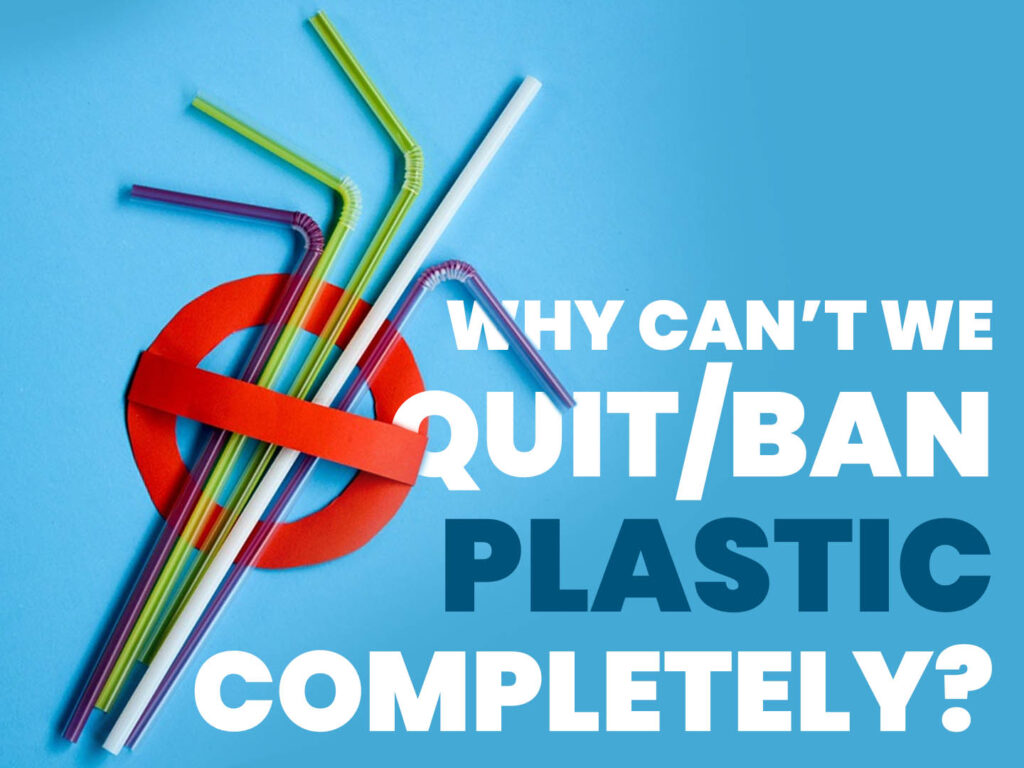We have all heard this sentence a lot lately, and it goes like,
“Almost all the plastic waste that has ever been created from the manufactured plastic to date resides in landfills and dumps or is strewn in the environment.”
More than 77 countries have enacted single-use plastic product bans to tackle this problem. Is this, however, an effective retort?
Although plastic bags have a poor connotation because of the hazards it is creating, eliminating plastic might have some unexpected consequences.
A complete ban around the world or even in some countries might have adverse effects on consumers and probably on the economy as well.
Plastics, without a doubt, are a significant concern when it comes to waste!
But probably the most severe aspect of this dilemma is our HEAVY reliance on plastic. It would be complicated, if not impossible, for us to forsake our dependence on plastic completely — it is simply too handy and practical for so many uses, and no other material has yet come close to matching its cost-effectiveness ratio.
One thing that we Can Not quickly get rid of or abandon is plastic.
Here are your answers to why:
Points In The Favor Of Plastic & Plastic Packaging
Durability
The long and robust polymer chains that make up the primary material for plastics make it extremely tough to break, unlike any other option available in the packaging.
1. Enhanced Safety
When dropped, plastic packaging is extremely durable and does not shatter into deadly fragments. If we talk about glass packaging or paper packaging, then the paper has the ability to get wet in no time, whereas glass breaks if dropped down. Hence, plastic is the only viable option available in terms of safety.
Visit Polybol for further information on the enhanced safety in various packaging options.
2. Compact & Lightweight
Plastic packing goods are light in weight yet strong in strength. As a result, customers and distribution chain staff can easily lift and handle plastic-wrapped items.
If we compare plastic to any other mode of packaging, then every other option comes with a hindrance either in compactness or weight.
3. Best Packaging Option For Foods
Plastic packaging is excellent for packaging foods, medications, and pharmaceuticals since it is hygienic.
It can be filled and sealed without the use of humans. The materials utilized, including bare plastic and additives, comply with all national and European Union food safety regulations.
Plastics are commonly utilized as medical devices in close contact with bodily tissue, and they meet the highest safety criteria in their life-saving applications.
4. Stability
Tamper-evident and child-safety closures are available in plastic packaging. The pack’s transparency allows customers to inspect the products before purchasing them.
5. Design Flexibility
The qualities of the materials in the industry’s diverse processing capabilities allow for creating an endless number of packaging forms and combinations.
Furthermore, the wide range of color options and the simplicity of printing and ornamentation make brand recognition and information more accessible to consumers.
6. Cheap & Low Investment Option
We all know how feasible and affordable manufacturing plastic is compared to other available options.
For Example, A glass bottle is far more expensive to make than a plastic bottle.
It may be a price we are ready to pay, but what about the impoverished in nations where the tap water is unfit to drink, who can hardly afford to buy adequate water, to begin with? They’re not going to be able to keep up with the price increase.
7. Recyclability
Plastic – is one hundred percent Recyclable!
But
What guarantee do we have that other options will be recycled completely and on time.
Food For Thought
Did you know that even if we abandon plastic packaging and go for a cheap alternative like paper packaging then remember that cotton farming needs a lot of space, a lot of water, a lot of chemical fertilizers, and many pesticides.
paper bags may consume up to 400 percent more energy to manufacture, not to mention the usage of poisonous chemicals and the harvesting of trees. Plastic bags are made from fossil fuels, which are a nonrenewable resource, and they are permanent, meaning they will remain in the waste stream indefinitely.
We can not simply abandon plastic until and unless we find a New Alternative, which comes at a better cost, quality, design, and recycling process!
Simply quitting plastic or plastic packaging would make it easier for Humans and Marine life; instead, it might be an adversary than a right step.
Hence, this is why plastic has not been entirely banned till now; why? Because we haven’t found something more suitable which brings so much value to the table.
To find out more about plastics and what benefits different types of plastic come in, we have a detailed guide on Polybol.

